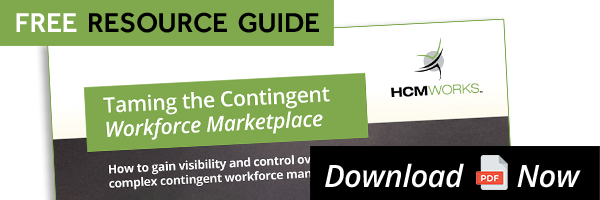In our blog last year, we covered the introduction of a new Californian bill that classified gig economy workers as employees within the western US state. The bill had the biggest impact on technology firms, such as Uber and Lyft, which had previously classified their drivers as contractors.
Technology firms that make use of gig economy workers have long been scrutinized for how they classify those workers, and that trend has continued into 2020.
Earlier this year, couriers working with online food delivery brand Foodora won the right to unionize in Toronto and Mississauga, Canada, following a historic ruling by the Ontario Labour Relations Board. Meanwhile, in June, Ontario’s labour board began hearing arguments over whether limousine and SUV drivers for Uber’s premium Black service can join a union.
Let’s take a look at the Foodora ruling, the Uber hearing, and what these events mean for your company’s contingent workforce management strategy.
What happened in the Foodora ruling?
In February, as reported by CBC, Ontario’s labour board rejected Foodora’s claim that its couriers were independent contractors who could not unionize. The couriers were ruled to be ‘dependent contractors’ - a classification that falls in between independent contractors and employees.
Since Foodora couriers didn’t establish their own base rate of pay or establish individual relationships with customers, the board came to the conclusion that these workers were indeed ‘dependent contractors’.
Matthew Wilson, Vice Chair of the Ontario Labour Relations Board (OLRB), who is also presiding over the Uber Black case, said: “The couriers are selected by Foodora and required to deliver food on the terms and conditions determined by Foodora in accordance with Foodora's standards. In a very real sense, the couriers work for Foodora, and not themselves.”
The ruling has given couriers the right to organize and certify as a union - the first decision of its kind in regards to the gig economy within Canada.
What about Uber?
Limousine and SUV drivers for Uber’s premium Black service have followed suit. In January this year, Uber Black drivers applied to OLRB to unionize with the United Food and Commercial Workers (UFCW) - and are now facing the same classification test as Foodora couriers.
Ontario’s labour board began hearing arguments in June, where, according to The Star, Uber described its drivers as “independent individuals” who use the company’s platform to “efficiently” identify potential customers. Uber claims these workers are entrepreneurs, similar to vendors “selling goods on eBay, Etsy or Shopify.”
Uber Black drivers, however, argue that they are not independent contractors and are seeking better pay and protection from unjust dismissal.
The Uber Black hearing is still ongoing.
Shining a light on the importance of contingent workforce management strategies
While your company should have no need to worry about your independent contractors suddenly being legally ruled as employees, the Foodora ruling and Uber hearing do shine some light on why it’s so important that you implement a successful contingent workforce management strategy and properly classify your non-permanent workforce.
Creating an all-encompassing management strategy made up of full-time employees, freelancers, independent contractors and non-permanent workers is complex. It’s unlikely that your business has either the resources or expertise in-house to perfect and streamline this process.
Implementing a successful contingent workforce management strategy, however, will ensure your organization is compliant with regulations in your area and that you are correctly classifying your workers. Not only that, but it will also help you realize a number of other benefits, from increased visibility and control of workers, better hiring processes, significant cost savings, optimized processes, superior access to top talent and much more.
HCMWorks has years’ of experience as a managed services provider (MSP) with specialized knowledge of managing the contingent workforce. We use our world-class vendor management technologies, innovative solutions, highly-knowledgeable team members and compliance expertise to ensure every step of your contingent workforce management process is seamless and viable.
Interested in learning more about how we can optimize your contingent workforce management strategy, or simply have a question about how the Foodora ruling or Uber Black hearing could impact the future of the gig economy? Get in touch with our team of experts today. We would love to hear from you.



